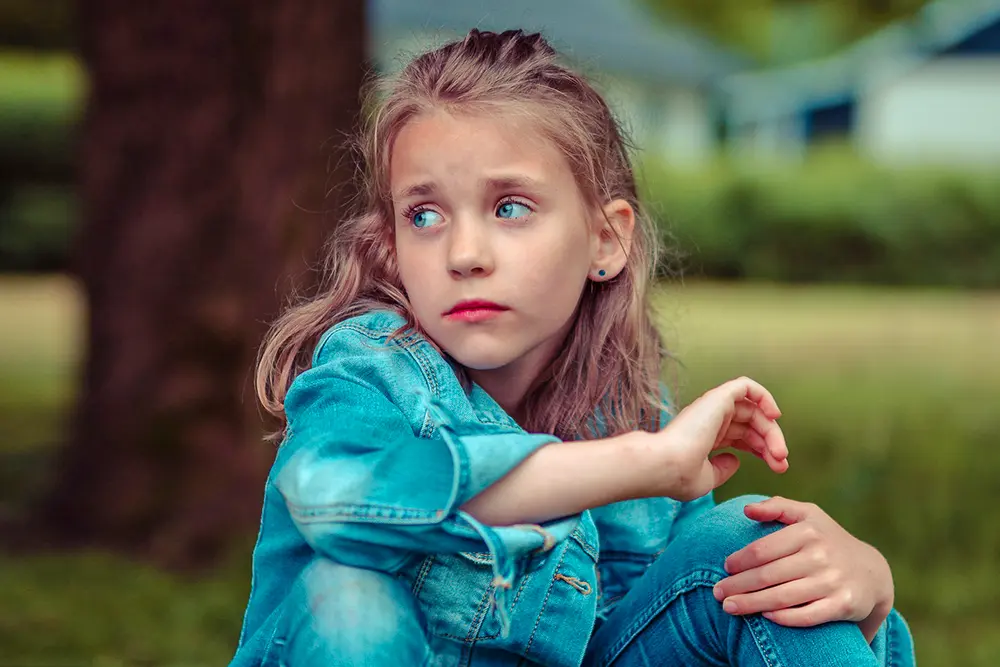Summer brings a welcome break from busy school routines, but it can also mean major shifts in daily structure, peer interaction, and social expectations. For children and teens who struggle with communication or social confidence, this quieter time can magnify feelings of loneliness and isolation—especially without the built-in social environment that school provides.
As a Regional Clinic of the National Social Anxiety Center (NSAC), The Children’s Center is here to help you better understand how Social Skills Training can be a powerful tool to support your child during these seasonal changes.
What Is Social Skills Training—and Who Is It For?
Social Skills Training (SST) is a therapeutic approach designed to help children, teens, and adults develop confidence and competence in their social interactions. While many social behaviors are learned naturally through observation and experience, not every child picks them up easily, especially those with anxiety disorders, autism spectrum disorder, ADHD, or other developmental differences. SST provides structured, step-by-step guidance to help individuals learn, practice, and apply effective communication strategies in real-life situations.
At The Children’s Center, our social skills programs are tailored to each person’s unique needs and stage of development. Whether your child struggles with starting conversations, interpreting body language, or navigating peer conflict, SST offers a safe, encouraging environment to practice those skills. And because social challenges don’t stop when the session ends, we involve caregivers closely, so progress continues outside of therapy. Summer can be the perfect time to introduce SST—when schedules are more flexible and there’s time to focus on building these lifelong abilities.
Why Summer Is a Crucial Time to Support Social Development
While school can be stressful, it also provides regular chances for children to engage socially. When summer hits, those daily opportunities may vanish. For kids with social anxiety or developmental delays, it can be especially hard. Without regular peer contact, some children become increasingly withdrawn, relying more on screens or solitary activities and missing out on valuable practice and feedback.
That’s why summer is a key time to prioritize social growth. The change in routine creates space for new learning without the added pressures of academics. It’s a chance to set manageable goals: initiating a playdate, ordering food at a restaurant, or attending a summer camp. These “everyday” interactions can become the foundation for greater confidence.
At The Children’s Center, we help families use this seasonal downtime as a springboard. Through one-on-one sessions and group work, kids can learn how to read social cues, understand emotions (theirs and others’), and express themselves in ways that build connection, all in a supportive, low-stress environment.
The Social Skills Training Process: What to Expect
Social Skills Training isn’t a one-size-fits-all program; it’s personalized, practical, and rooted in evidence-based strategies. Here’s how we typically approach the process:
- Assessment and Goal Setting: We begin with a clear understanding of your child’s strengths and challenges. Together, we define specific, achievable social goals.
- Skill Introduction: Using age-appropriate materials and examples, we introduce key concepts, such as personal space, turn-taking, or handling rejection.
- Modeling and Role Play: Therapists demonstrate behaviors in real time, then invite children to act them out. This builds comfort and clarity.
- Feedback and Encouragement: Kids receive positive, constructive feedback after acting out these interactions, reinforcing what went well and gently guiding improvements.
- Real-World Practice: “Homework” assignments give kids the chance to apply new skills at home, on playdates, or in public settings, each with caregiver support.
- Reinforcement and Growth: As confidence grows, we increase complexity and encourage independence, helping children transfer skills to new settings and relationships.
Signs Your Child Might Benefit from Social Skills Training
Not all social challenges are easy to spot—especially if a child is quiet, well-behaved, or prefers solo activities. Here are some indicators that SST might be helpful:
Your child avoids group activities, birthday parties, or new social settings.
- They have difficulty making or keeping friends.
- They struggle to start or maintain conversations.
- They often misinterpret jokes, sarcasm, or facial expressions.
- You’ve noticed high anxiety in social or unfamiliar situations.
- Teachers or caregivers have raised concerns about peer interaction.
- They tend to dominate conversations or interrupt frequently.
- They seem unaware of personal boundaries or tone of voice.
If any of these sound familiar, it’s worth exploring how Social Skills Training can build confidence and connection.
Caregiver Support: A Key Piece of the Puzzle
At The Children’s Center, we believe the best outcomes happen when families are fully involved. Caregivers are not just observers; they’re coaches, cheerleaders, and partners in the process. That’s why we include parent guidance throughout every phase of Social Skills Training. You’ll learn the same strategies your child is practicing and gain tools to reinforce those skills at home, at the park, or during everyday interactions.
This collaboration helps create consistency, so your child isn’t just “performing” during therapy—they’re truly learning. We also equip parents with ways to celebrate small wins, offer praise that motivates, and gently coach through challenges. Summer offers the perfect setting for this kind of support, with more flexibility to practice in real-life settings.
You’re not expected to have all the answers, but with the right resources, you can be a powerful part of your child’s growth and confidence in social settings. The Children’s Center is here to walk alongside you, every step of the way. Contact us today to learn more.

